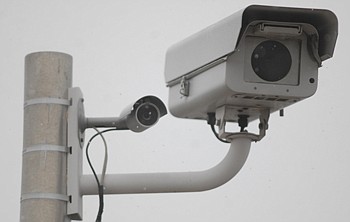NASHVILLE -- An amended bill restricting cities' use of traffic enforcement cameras is headed to the House Finance Committee despite concerns raised by Chattanooga officials over some of the measure's provisions.
Transportation Committee members on Tuesday approved the bill, sponsored by the panel's chairman, Bill Harmon, D-Dunlap.
The bill includes a number of provisions from another amendment agreed to by cities, police chiefs and several other groups. For example, it would do away with a proposed two-year moratorium on new traffic light and speeding cameras.
PDF: Summary of Amendment #01643773 on HB3024/SB2918
But during the hearing, Chattanooga Police Department Lt. David Roddy pointed out the bill goes further in a number of areas, noting it would limit fines to no more than $50 and would prohibit cities from levying additional penalties on late payers.
"There is no incentive to pay" the fine, Lt. Roddy said.
Rep. Harmon said nothing in the bill prohibits cities from using collection agencies provided the information is not turned over credit agencies.
But Lt. Roddy also raised concerns about other provisions. That included a requirement that a three-year history of an intersection crash site must show it exceeds statewide averages before a traffic camera can be installed.
Lt. Roddy noted that traffic flows at an intersection may worsen quickly when a road or bridge is closed. He also raised concerns that language in the bill appears to require cities and not vendors operating the cameras to mail citations. That could prove costly to cities, he said.
Bill's Provisions
* After Jan. 1, no local government could place traffic enforcement cameras on any highway receiving state aid unless the contract with the private vendor is based solely on a set fee. Payments to the vendor no longer could be based on the percentage or number of traffic citations generated by the camera. That would affect Chattanooga and Red Bank.
* Traffic engineering studies would be required for all new traffic enforcement cameras. Cities first must have tried other engineering solutions to problems before using cameras. Local elected bodies in separate votes must approve engineering studies and the eventual placement of cameras.
Continue reading by following these links to related stories:
Times Editorial: Save cameras, nail scofflaws
